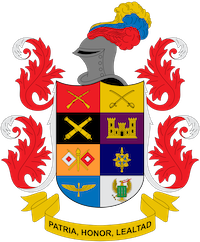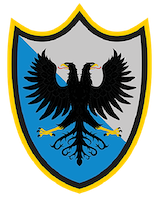The role of the Colombian National Army in the construction of regional integration scenarios: a new security and defense paradigm.
Abstract
The Colombian National Army, due to the Internal Armed Conflict that the South American nation is experiencing, has been forced to prioritize the security of the territory and the defense of the population against an internal threat, however, with the development of the peace processes with the guerrillas of the Revolutionary Armed Forces of Colombia (FARC) and the National Liberation Army (ELN) together with the efforts to redefine the roles of the Armed Forces and establish new doctrines that adapt to the context, it is a priority to establish the role that this Army should play in the construction of regional integration scenarios, starting from its constitutional vocation to defend the land borders of the nation and taking this traditional role to new scenarios of regional integration, it is a priority to establish the role that this Army should play in the construction of regional integration scenarios, starting from its constitutional vocation of defending the nation's land frontiers and taking this traditional role to the new times, promoting bilateral cooperation scenarios in security and defense matters, mainly to face the new threats that, led by transnational organized crime gangs, threaten State organization, institutional stability and the security of the population.
Interdependence, the development of frontier capabilities, bilateral cooperation, the strengthening of scenarios such as the Binational Frontier Commissions (COMBIFRON) and the decisive mobilization of military forces to frontier zones, are the pillars that will give impetus to the construction of regional integration scenarios under the leadership of the Colombian National Army.
Downloads
References
Caracol Radio. (28 de 09 de 2017). Caracol Radio. Recuperado de: http://caracol.com.co/radio/2017/06/15/nacional/1497542080_922577.html.
Dougherty, J., & Pfaltzgraff, R. (1993). Teoría en pugna en las Relaciones Internacionales. Buenos Aires: Grupo Editorial Latinoamericano. Recuperado de: https://eva.udelar.edu.uy/pluginfile.php/1013336/mod_resource/content/0/Dougherty%2C%20J.%20%20Pfaltzgraff%2C%20R.%20%281993%29%20-%20Teor%C3%ADas%20en%20pugna%20en%20las%20relaciones%20internacionales.pdf.
Ejército Nacional de Colombia. (27 de 09 de 2017). Primera División del Ejército Nacional. Recuperado de: https://www.primeradivision.mil.co/primera_division_ejercito_nacional/brigadas/decima_brigada_blindada/resena_historica.
Ejército Nacional de Colombia. (28 de 09 de 2017). Tercera División del Ejército Nacional. Recuperado de: https://www.ejercito.mil.co/?idcategoria=277468.
González Cuenca, D. (2011). El papel del Estado colombiano en las nuevas Relaciones Internacionales desde la perspectiva económica. Bogotá: Universidad Militar Nueva Granada.
Jarrín, O. (2004). La ineludible seguridad cooperativa en el conflicto. En D. Cardona, Encrucijadas de la seguridad en Europa y las Américas (págs. 373-394). Bogotá: CEPI.
Misión de Política Exterior de Colombia. (2010). Informe Final. Bogotá: Ministerio de Relaciones Exteriores de Colombia. Recuperado de: https://www.repository.fedesarrollo.org.co/handle/11445/228.
RESDAL. (2003). Política de Defensa y Seguridad Democrática – Parte I. La Política de Defensa y Seguridad Democrática. Bogotá: Red de Seguridad y Defensa de América Latina. Recuperado de: https://www.oas.org/csh/spanish/documentos/Colombia.pdf.
Rivera, F. (2005). Ecuador: Untangling the Drug War. Drugs and Democracy in Latin America. Lynne Rienner Publishers. Recuperate: https://www.rienner.com/title/Drugs_and_Democracy_in_Latin_America_The_Impact_of_U_S_Policy.
Rojas, D. M. (2009). El taller del imperio global: Análisis de la Intervención de Estados Unidos en Colombia (1998-2008). IEPRI , 111-126. Recuperado de: https://revistas.unal.edu.co/index.php/anpol/article/view/45962/47517.
Sánchez, R. (2011). Karl Deutsch y su contribución al estudio de las Relaciones Internacionales. Relaciones Internacionales, 1-27. Recuperado de: https://www.revistas.una.ac.cr/index.php/ri/article/view/111.
Tickner, A. (2008). Colombia y Estados Unidos: una relación “especial”. Foreign Affairs Latinoamérica, 65-72. Recuperado de: https://www.academia.edu/27768820/Colombia_y_Estados_Unidos_una_relaci%C3%B3n_especial.













